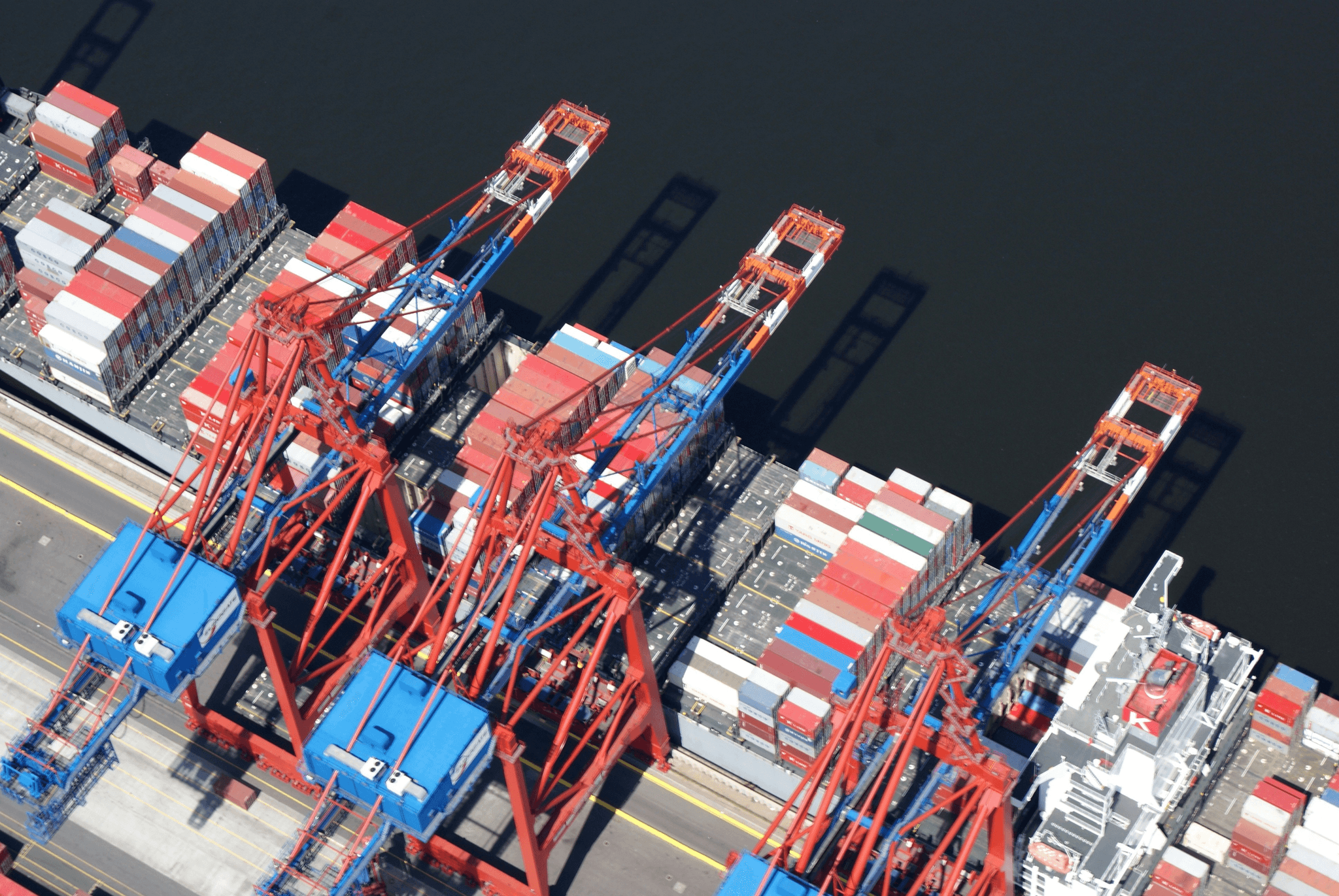Introduction
Who should bear the handling fees in the international trade settlement? This question is crucial, yet often overlooked, as it can significantly impact profit margins and relationships between trading partners.
Understanding Handling Fees in Trade
Handling fees are essential components of international trade that cover the costs associated with processing goods during their journey from one country to another. These fees can include everything from packaging and loading to transportation and customs clearance. Understanding who should bear the handling fees in the international trade settlement is vital for both importers and exporters to ensure smooth transactions.
The Importance of Clear Settlement Terms
Clear settlement terms are paramount in avoiding disputes over who pays what when it comes to handling fees. Without precise agreements, misunderstandings can arise, leading to financial losses or strained relationships between parties involved. By establishing transparent terms regarding handling fees upfront, businesses can mitigate risks and focus on building long-term partnerships rather than resolving conflicts.
Key Players in International Trade
In international trade, several key players influence how handling fees are managed: importers, exporters, freight forwarders, and customs brokers all play significant roles. Each party has its own responsibilities and expectations concerning these fees, which adds layers of complexity to settlements. Therefore, understanding who should bear the handling fees in the international trade settlement becomes essential for fostering cooperation among all stakeholders involved.
What Are Handling Fees?

Handling fees are a crucial element in the landscape of international trade, often determining the profitability and feasibility of transactions. These fees can vary widely depending on several factors, including the nature of goods being traded and the specific logistics involved. Understanding handling fees is essential for both importers and exporters as they navigate their financial responsibilities.
Definition and Overview
Handling fees refer to charges incurred during the processing, storage, and transportation of goods within international trade. These costs cover various activities, including loading and unloading cargo, warehousing, documentation processing, and other logistical services essential for smooth operations. Essentially, they play a pivotal role in ensuring that products move efficiently from one point to another while maintaining quality.
When considering Who Should Bear the Handling Fees in the International Trade Settlement?, it becomes evident that these fees can significantly impact profit margins for both parties involved. The allocation of these costs often depends on contractual agreements made before transactions occur. Thus, clarity around handling fees is vital for fostering healthy trade relationships.
Common Types of Handling Fees
There are several types of handling fees that businesses may encounter in international trade scenarios. Some common examples include terminal handling charges (THC), which cover services at ports; documentation fees related to paperwork; and customs clearance charges associated with regulatory compliance. Each type serves a distinct purpose but collectively contributes to the overall cost structure.
Moreover, understanding these various handling fee categories helps answer the question: Who Should Bear the Handling Fees in the International Trade Settlement? Often dictated by contract terms or industry standards, these distinctions can lead to disputes if not clearly defined upfront. As such, importers and exporters must be well-informed about potential costs before entering into agreements.
Importance in International Trade
Handling fees are not just mere financial obligations; they hold strategic importance in shaping international trade dynamics. For one thing, they affect pricing strategies—higher handling fees can lead to increased product prices or reduced competitiveness in foreign markets. This aspect makes it crucial for businesses to negotiate favorable terms regarding who bears these costs.
Furthermore, understanding who should bear the handling fees is essential for risk management in international settlements. Misunderstandings over fee responsibilities can lead to disputes that jeopardize longstanding business relationships or even result in costly legal battles down the line. Therefore, clear communication regarding handling fees is paramount for successful international trade operations.
The Role of Importers and Exporters
In the intricate world of international trade, importers and exporters play pivotal roles in determining who bears the handling fees in the international trade settlement. Their responsibilities are not just limited to transactions; they also encompass navigating the complexities of logistics, legalities, and financial implications. Understanding these roles is crucial for ensuring smooth operations and fair settlements.
Responsibilities of Importers
Importers are tasked with a variety of responsibilities that extend beyond merely receiving goods from overseas. They must ensure compliance with local regulations, manage customs clearance, and organize transportation from ports to final destinations. Additionally, importers often negotiate terms regarding handling fees upfront; this negotiation can significantly influence who should bear the handling fees in the international trade settlement.
Beyond logistics, importers need to maintain open lines of communication with exporters to clarify expectations regarding costs associated with handling fees. By doing so, they can prevent misunderstandings that might lead to disputes later on. Ultimately, their role is about creating a seamless flow of goods while being mindful of cost distribution.
Responsibilities of Exporters
On the flip side, exporters have their own set of responsibilities that shape how handling fees are managed in international trade settlements. They must prepare goods for shipment according to both international standards and the specific requirements set forth by importers. This includes packaging, labeling, and sometimes even pre-arranging logistics for transporting goods to port.
Exporters also play a critical role in negotiating terms related to handling fees before shipping occurs. By clearly outlining who should absorb these costs—whether it’s them or the importer—they can mitigate potential conflicts down the road. Furthermore, maintaining transparency about any additional charges ensures that both parties are aligned on expectations.
Balancing Interests in Settlements
Balancing interests between importers and exporters is essential for establishing fair agreements regarding who should bear the handling fees in international trade settlements. Both parties must approach negotiations collaboratively rather than adversarially; this fosters mutual understanding and promotes long-term business relationships. When interests align—such as agreeing on shared responsibility for certain costs—it can lead to smoother transactions overall.
Moreover, considering market practices and industry standards is vital when discussing fee distribution during negotiations. While some businesses may adopt a “whoever pays first” approach, others might prefer a more equitable split based on volume or value shipped—each scenario emphasizing different aspects of partnership dynamics in trade settlements.
Ultimately, successful settlements hinge on clear communication about responsibilities related to handling fees while respecting each party's concerns about costs involved.
Factors Influencing Who Pays the Fees

Determining who should bear the handling fees in the international trade settlement is influenced by various factors. These elements can shape negotiations and ultimately affect the financial outcome for both importers and exporters. Understanding these factors is crucial for anyone involved in international trade.
Contract Terms and Negotiations
The contract terms set forth between parties play a pivotal role in deciding who should bear the handling fees in the international trade settlement. Clear stipulations regarding fee responsibility can prevent misunderstandings and disputes down the line. Negotiations prior to finalizing agreements allow both sides to express their preferences, helping to clarify expectations and responsibilities.
When importers and exporters engage in negotiations, they often discuss which party will absorb various costs, including handling fees. This negotiation process can be influenced by power dynamics, market conditions, or even previous relationships between parties. Ultimately, well-negotiated contracts can lead to smoother transactions and minimize conflicts over payment responsibilities.
Market Practices and Industry Standards
Market practices significantly influence who should bear the handling fees in international trade settlements as different industries may have established norms regarding fee distribution. For example, some sectors may expect exporters to cover these costs as part of their service offering, while others may place that burden on importers. Familiarity with industry standards helps businesses navigate these expectations effectively.
Additionally, companies that operate within specific markets often adapt to prevailing practices to remain competitive. This adherence can lead to varying interpretations of who pays what based on common customs rather than explicit agreements. Thus, understanding market practices becomes essential for both importers and exporters when negotiating their contracts.
Currency Exchange and Fee Variations
Currency exchange rates also play a critical role in determining who should bear the handling fees in international trade settlements. Fluctuations in currency values can impact overall transaction costs, making it more or less advantageous for one party over another to assume responsibility for these fees. Consequently, businesses must consider how exchange rates could affect their bottom line when discussing fee allocation.
Moreover, variations in handling fees due to currency differences might create disparities that complicate negotiations further. Importers may find themselves at a disadvantage if they are required to pay higher fees due solely to unfavorable exchange rates at the time of settlement. Therefore, understanding how currency dynamics interact with fee structures is vital for achieving fair outcomes in international trade dealings.
Case Studies: Real-World Examples

In the world of international trade, real-world examples provide valuable insights into the complexities surrounding handling fees. These case studies illustrate both successful settlements and disputes that arise over who should bear the handling fees in the international trade settlement process. By examining these scenarios, we can glean important lessons that inform best practices for future transactions.
Successful Settlements and Handling Fees
One notable case involved a U.S. exporter of machinery who negotiated a clear agreement with an importer in Germany regarding handling fees. The contract explicitly stated that the importer would cover all handling fees associated with customs clearance, which helped avoid any misunderstandings later on. This proactive approach not only facilitated smooth transactions but also established a strong relationship between both parties, showcasing how clarity in agreements can lead to successful settlements.
In another instance, a textile exporter from India successfully navigated handling fees by leveraging industry standards during negotiations with a European retailer. By aligning their expectations with common practices, both parties agreed on a fair distribution of costs related to shipping and customs processing. This collaboration highlighted how understanding market norms can lead to mutually beneficial outcomes regarding who should bear the handling fees in international trade settlements.
These examples underscore the importance of clear communication and detailed contracts in preventing disputes over handling fees while fostering positive business relationships.
Disputes Over Handling Fees
Conversely, disputes often arise when there is ambiguity surrounding who should bear the handling fees in international trade settlements. A prominent case involved an electronics manufacturer who faced unexpected charges from their freight forwarder after shipment to Canada was completed. The manufacturer believed that these costs were included in their original agreement with the supplier but found no explicit mention of it within their contract, leading to significant tension and financial strain.
Another example involved a food importer who encountered issues when additional handling fees were charged unexpectedly upon arrival at port due to regulatory changes. The importer argued that they had communicated all necessary details upfront; however, without clear documentation outlining fee responsibilities, both parties ended up blaming each other for miscommunication—resulting in costly delays and strained relations.
Such disputes serve as cautionary tales about the need for comprehensive contracts and open lines of communication regarding fee responsibilities.
Lessons Learned from Case Studies
From analyzing these case studies, several key lessons emerge about managing handling fees effectively in international trade settlements. First and foremost is the importance of clarity: both importers and exporters must ensure that all terms related to handling fees are explicitly outlined within contracts to avoid confusion later on. When negotiating agreements, it’s crucial for parties to discuss potential fee scenarios openly—this transparency can help mitigate disputes before they escalate.
Additionally, understanding industry standards can provide valuable context during negotiations about who should bear the handling fees in international trade settlements; this knowledge empowers businesses to make informed decisions aligned with market expectations while fostering goodwill among trading partners.
Legal Perspectives on Handling Fees

Navigating the murky waters of handling fees in international trade requires more than just a good deal; it often necessitates the expertise of legal professionals. These experts play a pivotal role in ensuring that all parties understand their rights and obligations regarding who should bear the handling fees in the international trade settlement. Their involvement can help clarify complex contractual language, making sure that both importers and exporters are on the same page when it comes to fee responsibilities.
Role of Legal Professionals in Settlements
Legal professionals serve as guides through the intricate landscape of international trade agreements, helping to delineate who should bear the handling fees in the international trade settlement. They assist in drafting contracts that clearly outline fee responsibilities, mitigating potential disputes before they arise. Additionally, their expertise can provide invaluable insights during negotiations, ensuring that settlements are fair and equitable for all parties involved.
AC&E's Expertise in Trade Agreements
AC&E has carved out a niche for itself by specializing in trade agreements that address who should bear the handling fees in the international trade settlement. Their team is well-versed in navigating diverse regulatory environments and understands how different jurisdictions interpret handling fees. By leveraging AC&E’s expertise, businesses can better position themselves to negotiate favorable terms while minimizing legal risks associated with these often-overlooked costs.
Mitigating Risks Through Legal Guidance
When it comes to determining who should bear the handling fees in the international trade settlement, having legal guidance is not just beneficial—it's essential for risk mitigation. Legal professionals can identify potential pitfalls within contracts and advise clients on best practices for fee allocation based on market standards and negotiation strategies. With their support, businesses can navigate complexities with confidence, ultimately leading to smoother transactions and healthier trading relationships.
Conclusion

Navigating the complex world of handling fees in international trade is no small feat. As we've explored, the question of Who Should Bear the Handling Fees in the International Trade Settlement? remains a critical consideration for both importers and exporters. Understanding these fees, their implications, and how they can be fairly distributed is essential for successful trade relationships.
Key Takeaways on Handling Fees
Handling fees are an integral part of international trade settlements, often overlooked but crucial nonetheless. These fees can vary significantly based on contract terms, market practices, and even currency fluctuations. Ultimately, recognizing the nuances of handling fees helps parties make informed decisions about Who Should Bear the Handling Fees in the International Trade Settlement? while fostering smoother transactions.
Strategies for Fair Fee Distribution
To ensure fair distribution of handling fees, clear communication and negotiation between parties are paramount. Importers and exporters should outline fee responsibilities within contracts to avoid disputes later on. By proactively addressing Who Should Bear the Handling Fees in the International Trade Settlement? through well-defined agreements, businesses can promote transparency and maintain healthy trading relationships.
The Future of International Trade Settlements
As global trade continues to evolve, so too will the dynamics surrounding handling fees. With advancements in technology and changes in market practices, we may see a shift towards more standardized approaches to fee distribution. Addressing Who Should Bear the Handling Fees in the International Trade Settlement? will remain vital as stakeholders adapt to new challenges and opportunities in this ever-changing landscape.
